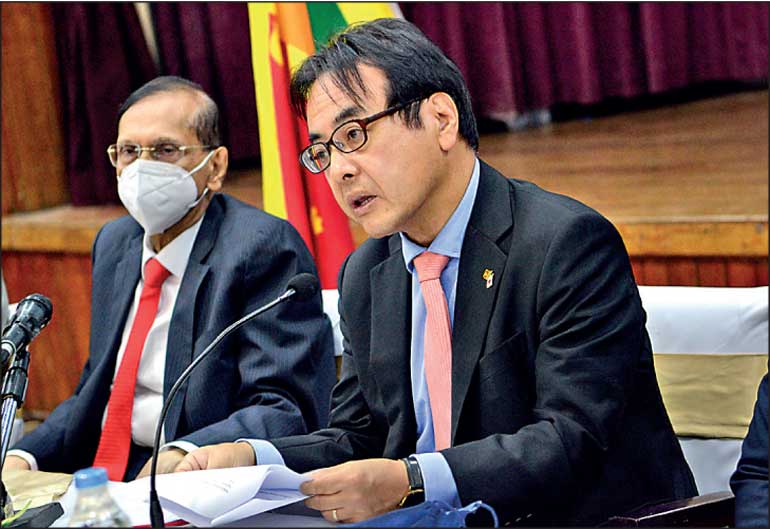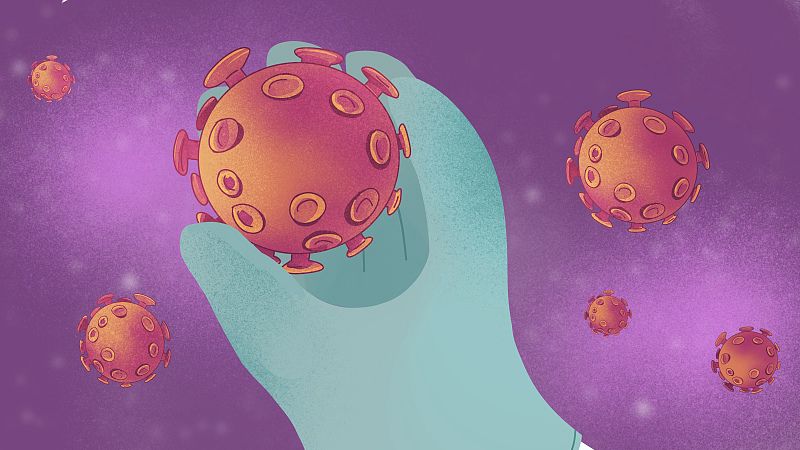Covid-19 has infected more than 276M people and killed over 5.3M worldwide. Here are some of the latest coronavirus-related developments:
China orders 13 million Xi’an residents to stay home over outbreak
The northern Chinese city of Xi’an has ordered all 13 million residents to stay home, in a strict lockdown as concern grows over a fresh outbreak of Covid-19.
All households may only “send one household member outside once every two days to purchase necessities,” with all others ordered to remain indoors except for emergencies, the city government said in a statement on its official Weibo social media account.
France reports near-record 84,272 new cases
France has reported 84,272 new Covid-19 infections in the last 24 hours, coming close to its all-time high of almost 87,000 cases in November 2020.
Coming within reach of the 84,999 new cases recorded at the height of France’s spring wave in April, the value was also the country’s second-highest this year.
France’s health minister earlier on Wednesday said over 100,000 new infections could be reached by the end of this month.
Omicron variant continues spreading worldwide
The omicron strain of the coronavirus continues spreading across the world, with numerous countries reporting new cases of the fast-spreading variant of concern, as declared by the World Health Organization (WHO).
The new strain of Covid-19, first detected on November 25 in South Africa, is spreading faster compared to the Delta variant, even in countries where a high level of immunity had been achieved via vaccination, according to the WHO’s weekly Covid-19 report released on Monday.
As of Monday, omicron cases have been detected in a total of 106 countries so far.
The UK has registered the most omicron infections, according to the German company Statistica, with as many as 2,957 as of Thursday, followed by South Africa with 1,000 cases, and the US with 321.
Among other European countries, Denmark has counted 213 omicron cases, Switzerland 124, and Belgium 121.
Deaths caused by the variant have only been reported in Israel, the US, and UK, despite a month having passed since the strain was first detected.
Nigeria destroys 1 million donated AstraZeneca vaccines
Nigeria has destroyed more than a million doses of expired AstraZeneca vaccines in a bid to assure a wary public that they have been taken out of circulation.
The destruction on Wednesday came more than a week after health authorities said some Covid-19 doses donated by rich Western nations had a shelf life that left only weeks to administer the shots.
Reuters reported on December 7 that around one million vaccines were estimated to have expired in Nigeria in November without being used.
Faisal Shuaib, the National Primary Health Care Development Agency executive director told reporters that a shortage of vaccine supplies on the continent had forced Nigeria to take the doses, knowing fully well they had a short shelf life.
Health minister Osagie Ehanire has said Nigeria will no longer accept vaccines with a short shelf life, citing a presidential committee decision.
Britain to vaccinate vulnerable children
Britain has said it would start vaccinating vulnerable children aged five to 11 against Covid-19 after the country’s medicines regulator approved the use of a lower dose of the Pfizer-BioNTech shot in that age group.
The children will receive two 10-microgram doses of the Pfizer-BioNTech vaccine – a third of the adult dose – with an interval of eight weeks between the first and second doses, the Joint Committee on Vaccination and Immunisation (JCVI) said on Wednesday.
A decision on whether to offer vaccination in general to younger children would be taken after additional data on the rapidly spreading Omicron variant and the effect of immunising young children could be considered, the JCVI said.
The JCVI also advised that booster shots be of fered to 16 and 17 year-olds and those aged between 12 and 15 who were in a clinical risk group in response to the Omicronvariant.
Turkey’s domestic vaccine approved for emergency use
Turkey has announced that the homegrown Covid-19 vaccine Turkovac was approved for emergency use.
“As of today, we have become one of the nine countries producing a Covid-19 vaccine,” Health Minister Fahrettin Koca on Wednesday said at a production facility in the southeastern Sanliurfa province.
The vaccine will be in widespread use as of next week, he announced.
After half a century, Koca said, Turkey has developed a vaccine that was grown “100 percent locally by Turkish scientists.”
Austria tightens restrictions as it braces for Omicronwave
Austria is introducing restrictions including a 10 pm closing time to slow the spread of the Omicron coronavirus variant after Christmas and prevent it being imported from Europe’s hardest-hit countries, a senior health official said on Wedn esday.
Austria began emerging from its fourth full coronavirus lockdown 10 days ago. While that three-week lockdown slashed daily Covid-19 infections, the country is bracing for another surge because of the extremely contagious Omicron variant, of which several hun dred cases have been confirmed so far.
Britain, the Netherlands, Denmark and Norway will be classified as risk areas because of the prevalence of the Omicron variant there, Covid-19 policy coordinator Katharina Reich told a news conference on new measures that she said were aimed at delaying the full onset of Omicron.
New arrivals from those countries, some of which are among the winter sports hotspot’s biggest sources of tourists, will have to go into quarantine unless they have had a booster shot and can show a recent negative PCR test, Reich said.
The 10 pm closing time will be imposed on the hospitality sector as of December 27 and will remain in place on New Year’s Eve, she added, urging the public to celebrate that holiday only in small groups and with vaccinated people.
Japan confirms first known local Omicron transmissions
Japan has confirmed its first known local transmissions of the new Omicron variant of the coronavirus in Osaka.
The family of three in Osaka had no record of traveling overseas and their infections could not be traced, Osaka Governor Hirofumi Yoshimura said.
The three are the first known cases of community transmission of the Omicron variant in Japan, Yoshimura said.
“I believe they only happened to be detected and we must take steps on the assumption that there already are other cases of community transmission,” he said.
Yoshimura said current restrictions on eateries in Osaka will remain in place, including a limit of four people per table for a maximum of two hours, to minimise risks during the yearend holiday season, when coronavirus infections surged last year.
About 80 previous omicron cases have been identified in Japan, but all involved people who tested positive upon entry at airports or those linked to them, government officials have said.
Pfizer to provide 2.5M additional doses of its pill to UK
Pfizer Inc has said it will provide an additional 2.5 million doses of its Covid-19 pill Paxlovid to the United Kingdom.
A total of 2.75 million doses of the pill are expected to be delivered to the UK through 2022, the drugmaker said.
Philippines halves booster wait time to three months
The Philippines has halved to three months the waiting time for a booster dose of Covid-19 vaccine in its battle to rein in the Omicron variant of coronavirus.
The Southeast Asian nation joins Britain, Germany, South Korea and Thailand among a growing list of countries cutting the interval for boosters as they try to stave off a new surge in infect ions.
Adults can now receive a booster dose at least three months after taking the second complement of a two-dose vaccine, versus six months earlier, acting presidential spokesperson Karlo Nograles said.
Single-dose vaccine recipients are eligible for a booster after two months, he told a regular news conference.
Poland reports highest number of deaths in fourth wave
Poland has reported 775 Covid-related deaths on Friday, the highest daily number in the fourth wave of the coronavirus pandemic, the data from the health ministry showed.
Poland has been dealing with persistently high daily case numbers in a fourth wave that has forced authorities to tighten restrictions. On Friday Poland reported 18,021 new coronavirus cases with the total number of infections since the start of the pandemic crossing 4 million.
UK reduces self-isolation to 7 days for most in England
The British government said that it was reducing the Covid-19 self-isolation period to seven days from 10 days for people in England who get a negative result on a lateral flow test two days in a row.
The UK Health Security Agency said its analysis suggested a seven-day isolation period alongside two negative lateral flow test results had nearly the same protective effect as a 10-day isolation period without testing.
“We want to reduce the disruption from COVID-19 to people’s everyday lives,” Health Secretary Sajid Javid said in a statement.
Rapid lateral flow tests, which are provided free by Britain’s National Health Service, can be self-administered by people at home and give a result in 15 to 30 minutes.
UK: 14 deaths and 129 hospitalised by Omicron
There are currently 129 people in hospital with the Omicron variant of the coronavirus and so far 14 people have died with it, Junior Health Minister Gillian Keegan told Sky News.
She also said the UK government would not hesitate to bring in further Covid-19 restrictions if the data showed it was necessary.
Nearly $100B stolen in US relief funds
Nearly $100 billion at minimum has been stolen from Covid-19 relief programmes set up to help businesses and people who lost their jobs due to the pandemic, the US Secret Service has said.
The estimate is based on Secret Service cases and data from the Labor Department and the Small Business Administration, said Roy Dotson, the agency’s national pandemic fraud recovery coordinator, in an interview.
The Secret Service didn’t include Covid-19 fraud cases prosecuted by the Justice Department.
While roughly 3 percent of the $3.4 trillion dispersed, the amount stolen from pandemic benefits programmes shows “the sheer size of the pot is enticing to the criminals,” Dotson said.
Most of that figure comes from unemployment fraud.
The Labor Department reported about $87 billion in unemployment benefits could have been paid improperly, with a significant portion attributable to fraud.
Spain sets new daily record for Covid cases
Spain has shattered its previous record for daily coronavirus cases, with the Health Ministry reporting 49,823 new infections as omicron has quickly become the dominant strain.
In just one week, omicron has jumped from representing 3.4 percent of cases to 47.2 percent, according to the data.
Last Tuesday, Spain reported just over 26,000 infections.
US population growth dips due to Covid
US population growth dipped to its lowest rate since the nation’s founding during the first year of the pandemic as the coronavirus curtailed immigration, delayed pregnancies, and killed hundreds of thousands of US residents, according to government data.
The United States grew by only 0.1percent, with an additional 392,665 added to the US population from July 2020 to July 2021, bringing the nation’s count to 331.8 million people, according to population estimates released by the US Census Bureau.
The US has been experiencing slow population growth for years but the pandemic exacerbated that trend.
Israelis over 60, medics to get 4th Covid jab to curb Omicron
Prime Minister Naftali Bennett has said Israelis over the age of 60 and medical teams will be eligible for a fourth Covid vaccination, following the recommendation of an expert panel.
The decision came as the state was struggling to contain the spread of the Omicron variant, imposing travel and other restrictions while avoiding a domestic lockdown.
“I gave an order to prepare immediately for a fourth vaccination,” Bennett said on Twitter, with a spokesperson saying Israel would be the world’s first country to administer the fourth shot.
“The world will follow in our footsteps.”
Australia’s national Cabinet to meet early amid Omicron surge
Australia’s national Cabinet is set to hold an unscheduled meeting as states press the federal government to further shorten the wait time for booster vaccines amid a record surge in cases fuelled by the Omicron variant.
Australia is grappling with the more transmissible Omicron variant of the coronavirus as restrictions ease after higher vaccination levels but authorities are urging people to focus on the hospitalisation numbers, which remains far lower than during the Delta wave.
State leaders have been pushing Prime Minister Scott Morrison to lower the wait time for booster shots to around four months from five to contain the spread of Omicron.
Source: TRTWorld and agencies

 News4 days ago
News4 days ago
 News4 days ago
News4 days ago
 World5 days ago
World5 days ago
 World5 days ago
World5 days ago
 Sports3 days ago
Sports3 days ago
 News3 days ago
News3 days ago
 News5 days ago
News5 days ago
 Travel & Culture4 days ago
Travel & Culture4 days ago


















